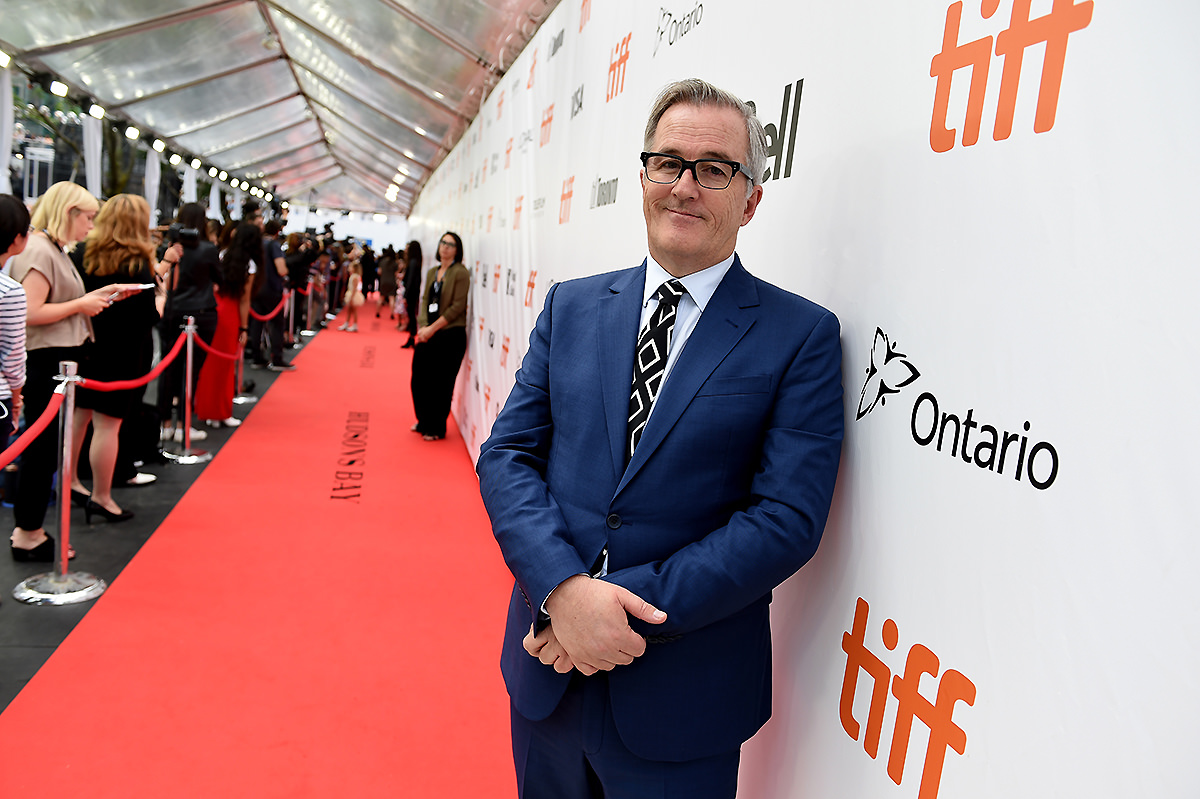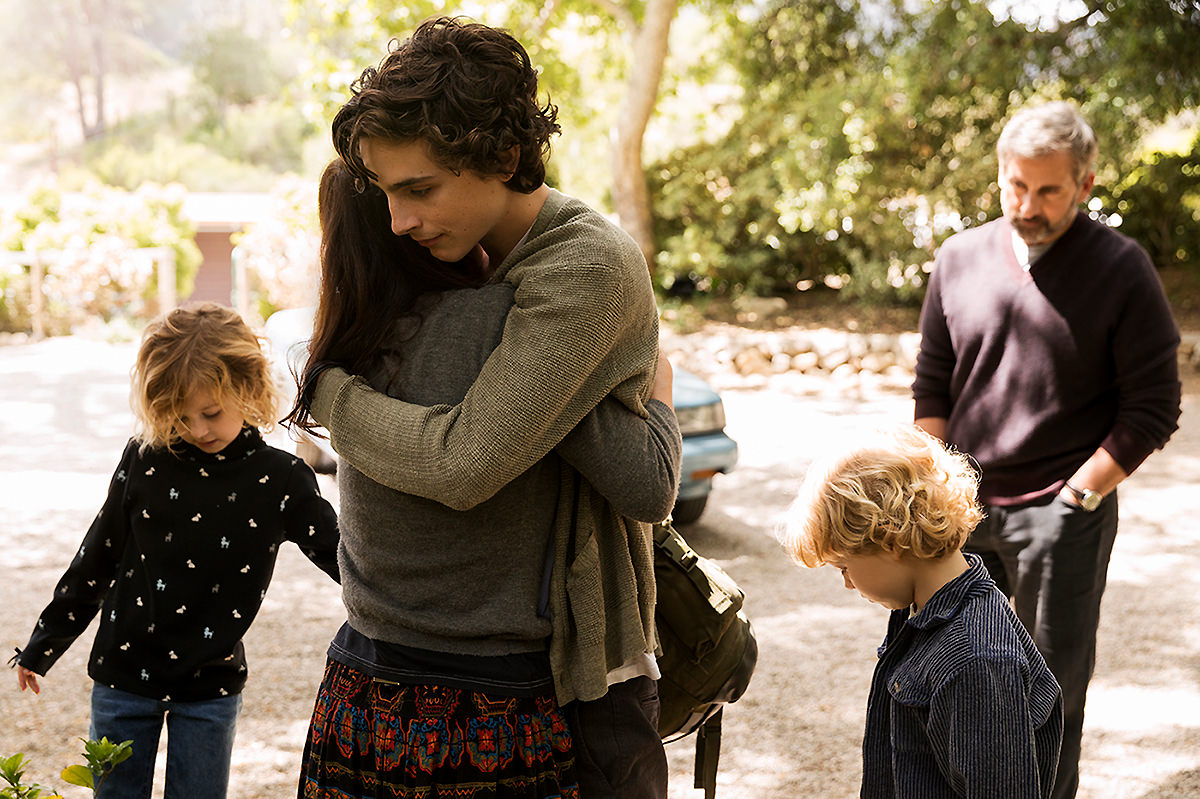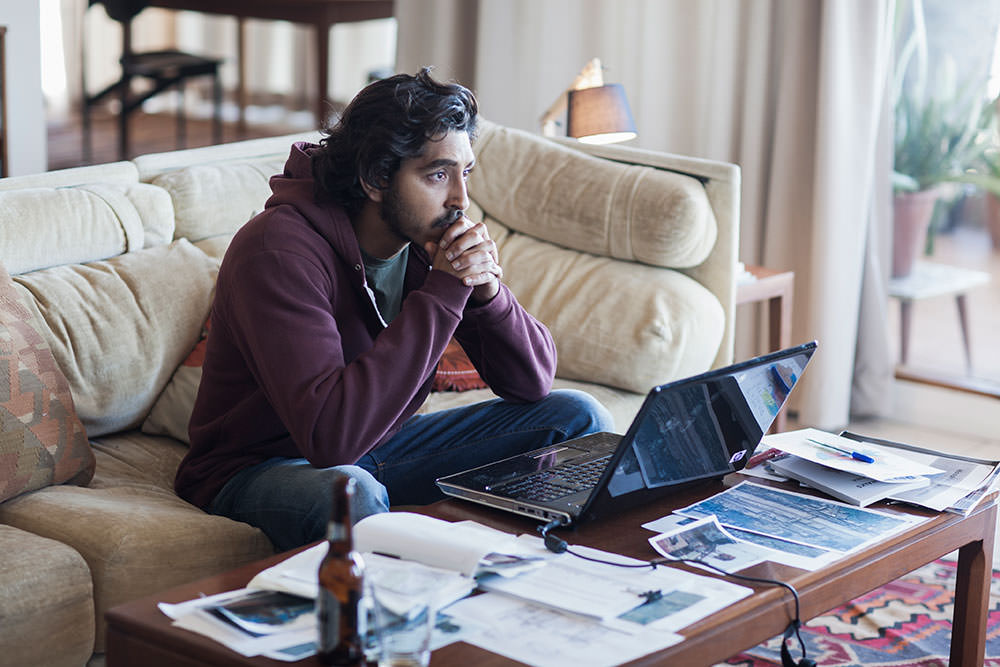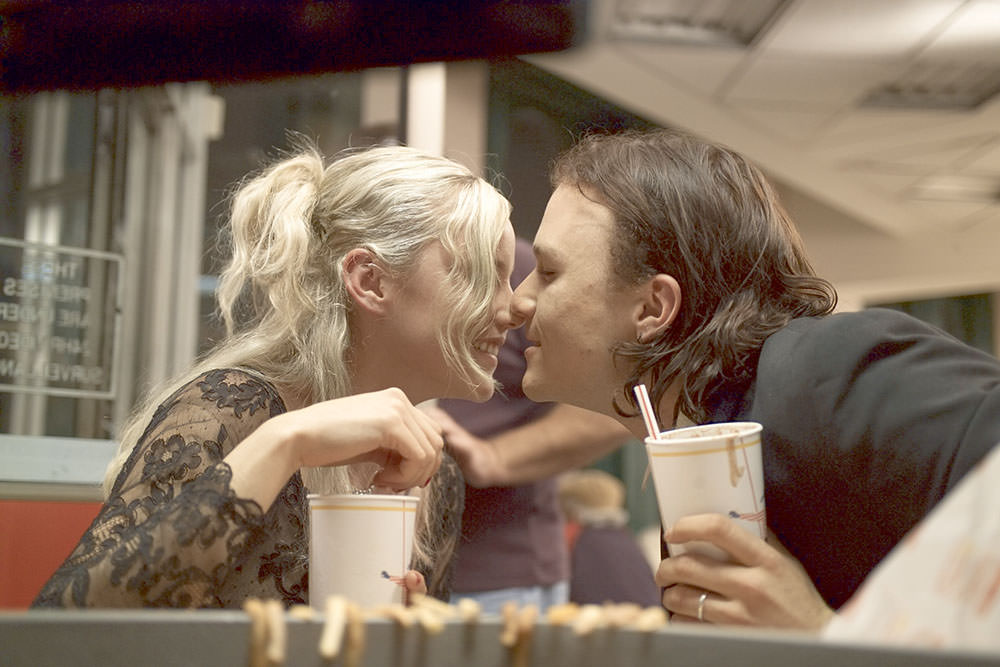Luke Davies: treatments, process, and post-Lion
Academy Award-nominated screenwriter Luke Davies on his approach to writing, the complexity of adapting Beautiful Boy, and life after Lion.
 Luke Davies at Beautiful Boy's Toronto International Film Festival premiere / Photo credit Kevin Winter / Getty
Luke Davies at Beautiful Boy's Toronto International Film Festival premiere / Photo credit Kevin Winter / Getty
If Luke Davies’ life were a screenplay, a turning point would surely be Lion.
The feature film adaptation of Saroo Brierley’s book A Long Way Home was nominated for six Oscars, including one for Best Adapted Screenplay. His screenplay won the BAFTA Award, and the film went on to earn more than $177.94 million worldwide*, and became one of the top five Australian films of all time at the local box office.
But aside from accolades, Lion had a personal impact on its writer.
“In a very concrete way Lion changed everything,” Davies says from Los Angeles, where he's been based since 2007. “In the sense that for the first time after years of struggle trying to make a living, trying to pay the rent, I suddenly had choice.”
Despite being an award-winning novelist, essayist, screenwriter and poet, this was an entirely new phenomenon for Davies.
“I had things being offered to me and I had to for the first time, work out how to make good decisions about pacing myself.”
Beautiful Boy (out now via Transmission Films) was one of those decisions. It is the latest feature from Davies, which he co-wrote with director Felix van Groeningen of The Broken Circle Breakdown. It’s also the latest in a line of adaptations he’s written. They include Lion and Candy (based on Davies' own "thinly veiled semi-autobiographical" novel) as well as upcoming projects such as director Kim Farrant’s Angel of Mine and Tom Hanks vehicle News of the World.
“It wasn't by design,” he says. “It’s just the way my career has panned out. One thing led to another and suddenly I had this track record of doing a handful of adaptations of source material.”
He’s keen to step into writing more original feature screenplays, and more television.
“My attitude is I love it all,” he says. “If I can be so lucky, I want to be involved in writing television and be moving into new roles, like showrunning a show perhaps, or running a writers' room.”
Davies adapted the upcoming US mini-series Catch-22 from the Joseph Heller novel (starring and directed by George Clooney), and also had an executive producer credit on the show.
“That’s a brand new experience,” he says. “And even directing, if I can work out the right circumstances in how to make that transition, I absolutely want to do that.” (He has directed one short – 2009’s Air.)
For now, Davies has a wealth of screenwriting projects in the pipeline. Here, he talks about his writing process, tips, and balancing the solitary practice of writing while still being collaborative:
What’s your day-to-day approach to writing? Do you write for a number of hours, try to average a certain number of words/pages?
I try and have very simple, regular work habits. I basically treat it like my office job, so Monday to Friday. If it's actual blank-page-creating-from-scratch, I find that four, five, or six hours is really intense. But if there's a lot of planning and writing notes, then 10am-6pm. Sometimes I work with an assistant who helps me order my thoughts and we use whiteboards, or I have a habit that once I've written a good treatment then I dictate, so I free myself from the keyboard. And I don't know why, but that method works for me.
When you’re embarking on a new project, do you prefer to figure out your structure first, or just get something down on paper?
I know not everyone works this way, but I need to work out the structure and the detail first. I'm just one of those people who writes really detailed treatments. And I find that once I've done that it serves two purposes: the first is that when your treatment is really detailed then everybody is on the same page, including producers and financiers; and the second thing is that on a personal level when I do it that way, it really frees me up. It makes the blank page creative process really exciting because I know… ‘here's my paragraph with what this scene is about’ and I get to create it. That's just the way it works for me. On day one of writing a new script I will cut and paste all of the paragraphs from the treatment into a brand new Final Draft document… and create scene headings. And so on day one… it's already about 15 pages long with big chunky paragraphs that describe what each scene is about. I just find that immensely helpful to get me started.
 Timothée Chalamet and Steve Carell star in Beautiful Boy / Transmission
Timothée Chalamet and Steve Carell star in Beautiful Boy / Transmission
So how long would one of your treatments typically be?
I have a reputation for them being too long. I’ve written 30 or 40 page treatments. But 20 pages is a good chunky one. Ten or 12 pages is good, but seven pages is more like synopsis with muscle. Mine tend to become 15+ and they’ve been known to be as much as 40. With a 40-page treatment you're literally talking about paragraph by paragraph scene breakdown of then this happens, and then this happens.
" ... seven pages is more like synopsis with muscle."
Your latest screenplay Beautiful Boy is based on not just one memoir, but two – Beautiful Boy by journalist David Sheff and Tweak: Growing up on Methamphetamines by his son Nic Sheff. How challenging was it adapting the two?
It's hard enough adapting a book because there's so much you have to make choices about with what to throw out and what to keep. Two books is just mathematically doubling that, but then the extra challenge is taking these two separate viewpoints and making it feel like one coherent viewpoint. We wanted the film to feel like a single cinematic experience, so we had to find out how to swing back and forth between the two narratives [of father and son], which are sometimes happening at the same place, and sometimes in completely different places. There's a lot of trial and error working out what should the balance be; how long are we with the Steve Carell’s character, David Sheff, how long we are with the Nic character (played by Timothée Chalamet). The first draft was enormous and there was a lot of continual boiling it down, boiling it down, boiling it down.
How long are we talking for that first draft?
The first pass was very much like ‘let's not worry about the page length. Let's get everything down that seems relevant’. And then it's like, ‘oh my God the page length is 180 pages. We now need to start worrying about page length and getting it down to 120 or whatever (the film’s final runtime is 112 minutes).
 Dev Patel stars in Lion
Dev Patel stars in Lion
Beautiful Boy you wrote with director Felix van Groeningen (The Broken Circle Breakdown). How did you find that experience?
It helps that I really admire Felix's films… and then when I got to know him it also helped that he's a really nice guy – thoughtful and intelligent and open to collaboration. And so we did a lot of discussing and charts on the wall, with long rolls of butcher's paper on the wall and then whiteboards, and we worked a little bit with Jeremy Kleiner, one of the film’s producers who runs the production company Plan B with Brad Pitt. Eventually we had a treatment that made sense, so I went off and wrote the first draft. We had more discussions and then I wrote the second draft, and then Felix took it off and did his own pass on the third draft. And it felt like a reduction – like in cooking when you're reducing a stew you have to keep going, keep boiling it away, getting rid of that, and discarding that.
" ... like in cooking when you're reducing a stew you have to keep going, keep boiling it away ... "
Did co-writing Beautiful Boy with Felix van Groeningen differ to other things you have co-written, such as Candy with director Neil Armfield, or Catch-22 with David Michôd? How do you balance the solitary act of writing and the collaborative nature of working with another writer or director?
It's an unfolding experience and it changes all the time. But there is a kind of similarity with say the Neil Armfield-Candy situation, the Felix-Beautiful Boy situation, the David Michôd-Catch 22 situation in that it was about coming together and going apart. So in each of these situations there's been stretches where I've gone away and written in solitude and then come back together for the refining. With Neil in Candy that was a different in the sense that he never took it away and wrote [on his own]. We were always together... With Felix it was the opposite. There were two occasions when I went away in solitude and wrote in passes, and two occasions where he went away solitude and wrote in passes. And with David on Catch-22 it was kind of a mixture. I wrote the first draft, then we worked together in a stretch of about six weeks where it was really intense. We were in the room all day, every day – connecting the laptop to the TV screen and actually looking at it in real time as we changed it. So they're three really different experiences. I don't have a preference for any. [But even with solely] my own scripts, like with Lion, Garth Davis' involvement was collaborative… We worked a lot together because it was his vision and his instincts about what was working, or not working. So [it was] his guiding hand, even though he didn't actually write anything.
Do you have any tips for screenwriters?
- 1 Delusional self-belief is perfectly okay. In the absence of anyone else believing in you, hold onto the delusional self belief.
- 2 On a more serious note: patience. Patience is everything. Patience mixed with belief and determination.
- 3 And then the third thing is really practical: detailed treatments are good, detailed planning is good. I do not believe you just leave it to chance or the muse or whatever mysterious force and think it'll be okay on the day with a blank page. I'm just a huge believer in front loading and preparing upfront. It makes the creative part of the process when you're actually creating new scenes and new dialogue way more exciting and exhilarating.
 Abbie Cornish and Heath Ledger in Candy
Abbie Cornish and Heath Ledger in Candy
This interview has been edited and condensed.
*^Lion worldwide box office includes USD$118m international box office, converted to AUD148.44 on 18/01/18. Source: Motion Picture Distributors Association of Australia (Australian) and Rentrak (global). Note box office figures have been rounded to one decimal place.
Beautiful Boy is out now through Transmission Films

What to read next
Boy Erased writer/producer/actor/director Joel Edgerton on how his passion for this true story led to a whirlwind turnaround from page to screen.
16 Oct 2018
Caris Bizzaca